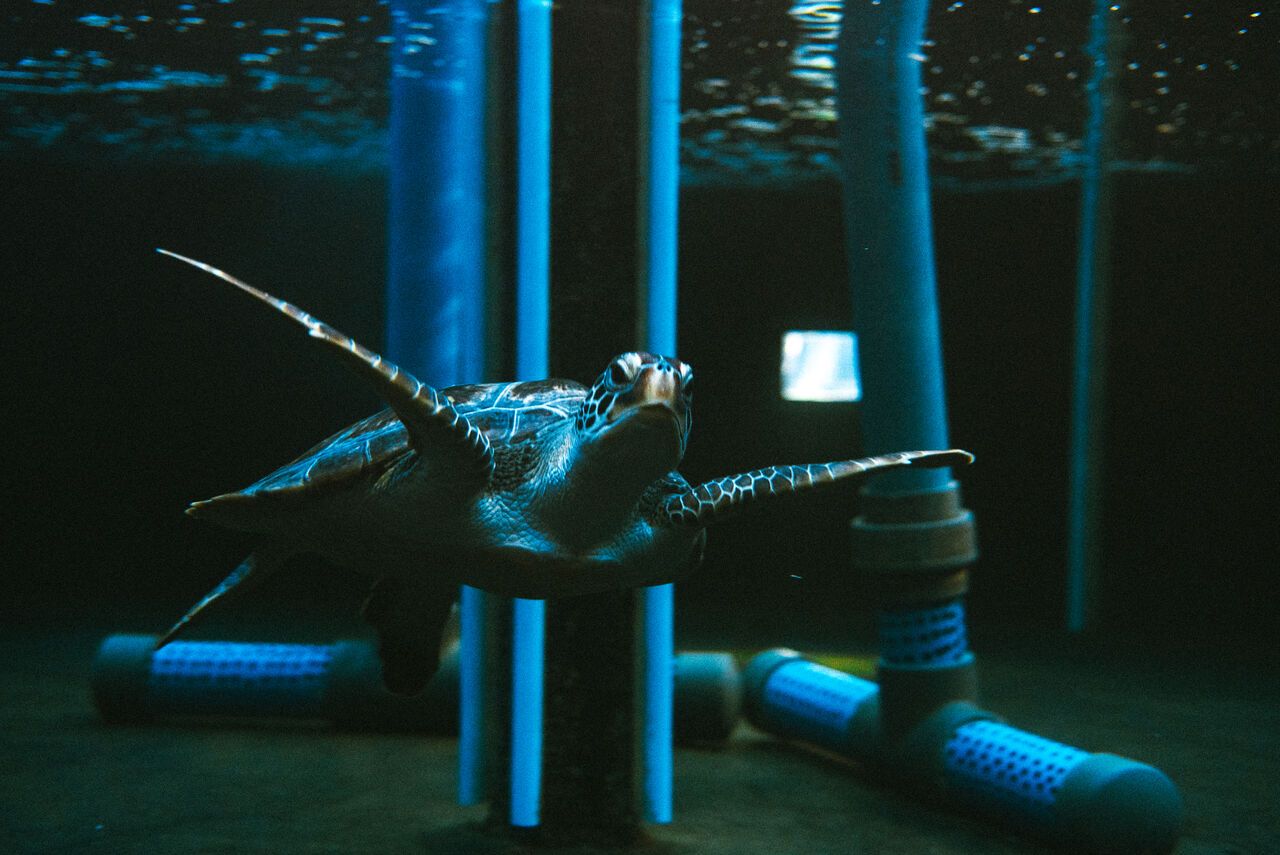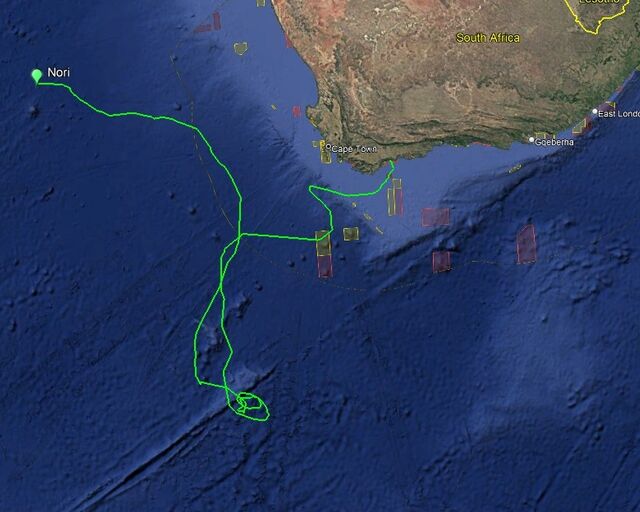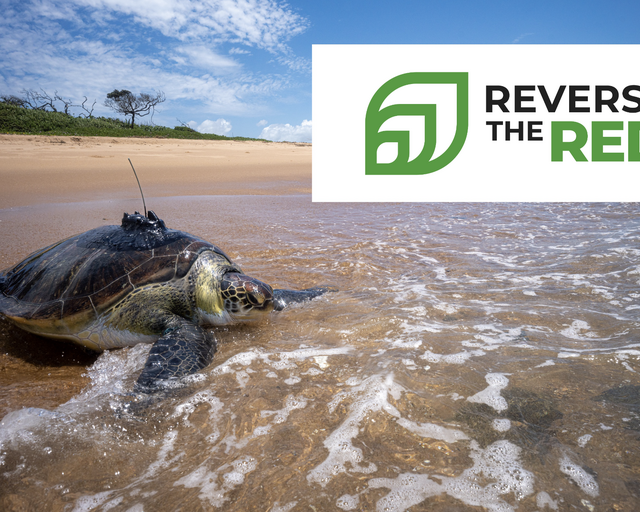In October 2024, a stranded green turtle was discovered in Nature’s Valley. The turtle, hidden in the rock crevices far above the tide line, was initially presumed dead.
Later, once the turtle’s dire state was realised, a second rescue attempt was launched. Chanel Visser, Cape Nature Ranger and an awesome turtle ambassador, nursed the turtle overnight. In conversation with our Turtle Conservation Centre team, Chanel reported that the turtle was weak and in poor condition, with barnacles, bryozoa, and small wounds and scrapes on her body.
The next day, Chanel transported the turtle (dubbed Pebbles by a volunteer who assisted in the rescue process) to George for transfer to the Turtle Conservation Centre.
When Pebbles arrived in Cape Town, she was on the brink of death. In fact, our veterinary team needed to breathe for her using a special apparatus that simulates lung movement. Thankfully, after several stressful hours, Pebbles took her first solo breath.
She was placed on oxygen overnight, and the team were relieved that she appeared to have regained some energy by the morning. Pebbles’ recovery was nothing short of miraculous, but she still had a long rehabilitation ahead…
A journey paved by resilience and expert care
When Pebbles first arrived at the Turtle Conservation Centre, she was uninterested in food to the extent that the team even struggled to tube feed her.
Our turtle vet, Dr Bernice van Huyssteen, decided to use total parenteral nutrition (TPN), a rare and intensive medical intervention that delivers nutrients directly into the bloodstream. The TPN prevented Pebbles from losing too much weight while the team continued to offer her food, hoping that her appetite would return.
Once Pebbles had somewhat stabilised, she was housed in a larger holding pool. This was when the team noticed that she had extreme buoyancy issues – she often floated at the surface of the water without being able to dive at all.
A CT scan with the team at Winelands Radiology revealed that Pebbles had a severe infection and nodules on her lungs, so Dr Bernice placed her on an extended course of antibiotics. The lung infection was persistent, so Pebbles required ongoing respiratory support. This ranged from oxygen therapy to having trapped air aspirated from her body cavity to relieve her buoyancy issues.
Throughout, Pebbles was being carefully fed a species-specific diet of marine greens and received regular wound care, physiotherapy, and expert veterinary monitoring.
Finally, after months of treatment, Pebbles turned a corner and started to thrive. Her infection cleared, her energy returned, and her appetite became voracious! She has been thoroughly enjoying her enrichment sessions, especially the “tower” and “food ball” activities that stimulate natural foraging behaviours and keep her engaged.
Readying Pebbles for release
Pebbles has made incredible progress since her rescue in October 2024.
Despite green turtles having recently been “downlisted” to Least Concern on the IUCN Red List, they still need our help. This means that every successful release makes a difference for their future.
Subadult green turtles like Pebbles have already survived the riskiest years of being a turtle and are on the cusp of adulthood, ready to contribute to future generations. As herbivorous grazers, they also help keep seagrass beds healthy, supporting biodiversity and carbon capture in marine ecosystems.
Our work at the Turtle Conservation Centre allows proven survivors like Pebbles to return to their ecosystems, boosting genetic diversity and population resilience in a changing climate.
Related News
Sign up to our Newsletter
Receive monthly news, online courses and conservation programmes.


